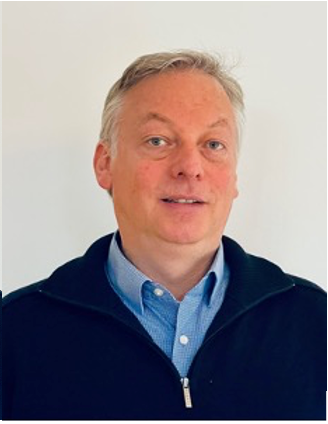Nanostructures in motion: chemical motors and nanorobotic systems
Please use this zoom link for joining the webinar
For a list of all talks at the NanoBio seminar Series Spring'25, see here
Dr. Peer Fischer
Professor of Experimental Physics
Heidelberg University
Germany
Peer Fischer is a Professor of Experimental Physics (Molecular Systems Engineering) at Heidelberg University and he heads the independent Micro Nano and Molecular Systems Lab at the Max Planck Institute for Medical Research in Heidelberg, Germany. He is also a Global Faculty member of the Advanced Science Institute and the Institute for Basic Science Center for NanoMedicine (IBS CNM) at Yonsei University, South Korea. Peer Fischer received a BSc. degree in Physics from Imperial College London and a Ph.D. from the University of Cambridge. He was a NATO (DAAD) Postdoctoral Fellow at Cornell University, before joining the Rowland Institute at Harvard. At Harvard he held a Rowland Fellowship and directed an interdisciplinary research lab for five years. In 2009 he received an Attract Award from the Fraunhofer Society which led him to set up a photonics lab at the Fraunhofer Institute for Physical Measurement Techniques in Freiburg. From 2011-2022 he headed the MPG research group at the Max Planck Institute for Intelligent Systems in Stuttgart, and from 2013-2022 he was a Professor of Physical Chemistry at the University of Stuttgart. In 2022 he moved his labs to Heidelberg University and the MPI for medical Research. Prof. Peer Fischer won an ERC Grant in 2011 and a World Technology Award in 2016. He received an ERC Advanced Grant in 2018. He is a member of the Max Planck – EPFL Center for Molecular Nanoscience and Technology, and the cluster of excellence 3D Matter Made to Order (3DMM2O). Peer Fischer is a Founding Editorial Board Member of the journal Science Robotics and a Fellow of the Royal Society of Chemistry. Professor Fischer has broad research interests including 3D nanofabrication & assembly, micro- and nano-robotics, active matter, interaction of optical, electric, magnetic, and acoustic fields with matter at small length scales, chirality, and molecular systems engineering.
Professor of Experimental Physics
Heidelberg University
Germany
Peer Fischer is a Professor of Experimental Physics (Molecular Systems Engineering) at Heidelberg University and he heads the independent Micro Nano and Molecular Systems Lab at the Max Planck Institute for Medical Research in Heidelberg, Germany. He is also a Global Faculty member of the Advanced Science Institute and the Institute for Basic Science Center for NanoMedicine (IBS CNM) at Yonsei University, South Korea. Peer Fischer received a BSc. degree in Physics from Imperial College London and a Ph.D. from the University of Cambridge. He was a NATO (DAAD) Postdoctoral Fellow at Cornell University, before joining the Rowland Institute at Harvard. At Harvard he held a Rowland Fellowship and directed an interdisciplinary research lab for five years. In 2009 he received an Attract Award from the Fraunhofer Society which led him to set up a photonics lab at the Fraunhofer Institute for Physical Measurement Techniques in Freiburg. From 2011-2022 he headed the MPG research group at the Max Planck Institute for Intelligent Systems in Stuttgart, and from 2013-2022 he was a Professor of Physical Chemistry at the University of Stuttgart. In 2022 he moved his labs to Heidelberg University and the MPI for medical Research. Prof. Peer Fischer won an ERC Grant in 2011 and a World Technology Award in 2016. He received an ERC Advanced Grant in 2018. He is a member of the Max Planck – EPFL Center for Molecular Nanoscience and Technology, and the cluster of excellence 3D Matter Made to Order (3DMM2O). Peer Fischer is a Founding Editorial Board Member of the journal Science Robotics and a Fellow of the Royal Society of Chemistry. Professor Fischer has broad research interests including 3D nanofabrication & assembly, micro- and nano-robotics, active matter, interaction of optical, electric, magnetic, and acoustic fields with matter at small length scales, chirality, and molecular systems engineering.
